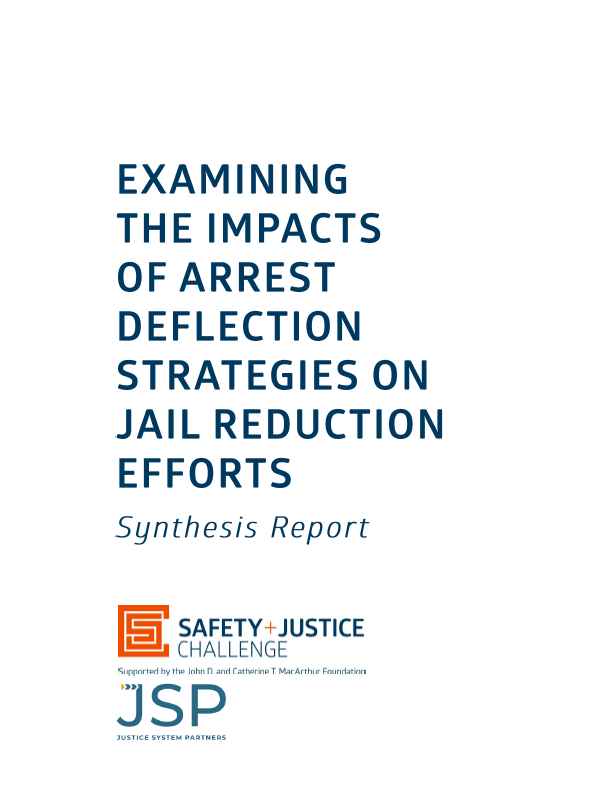Report
Diversion Featured Jurisdictions Jail Populations May 26, 2022
Examining The Impacts Of Arrest Deflection Strategies On Jail Reduction Efforts
In 2015, the John D. and Catherine T. MacArthur Foundation launched the Safety and Justice Challenge (SJC), a multi-year initiative to reduce populations and racial disparities in American jails. To advance knowledge development grounded in a research agenda that explores, evaluates, and documents site-specific strategies to safely and effectively reduce jail populations and address racial and ethnic disparities, the Foundation engaged the Institute for State & Local Governance (ISLG) at the City University of New York (CUNY) to establish and oversee an SJC Research Consortium. Consortium members are nationally renowned research, policy, and academic organizations collaborating with SJC sites to build an evidence base focused on pretrial reform efforts.
Reducing jail populations and the collateral consequences of the legal system requires jurisdictions to critically examine the practices bringing these populations through the criminal legal system's front door. It requires implementing opportunities to reduce reliance on citation or arrest/booking, especially for populations with serious mental health disorders (SMHD) or substance use disorders (SUD), while also providing individuals the help and referrals they need to be well. Police-led deflection allows police officers discretion to replace arrest with outreach to community-based service providers. In an effort to learn more about how police-led deflection strategies operate, ISLG funded Justice System Partners to conduct mixed-methods studies of deflection strategies in two SJC sites.
Using administrative data from local crisis centers and interviews with police officers in Pima County, AZ and Charleston County, SC, this mixed methods study aimed to understand how deflection of individuals with SMHD/SUD operates in both sites.
Key takeaways include:
- A parallel treatment revolving door to the legal system revolving door, which acknowledges the challenges of treatment initiation and engagement and provides individuals with SMHD/SUD with a "no wrong door" policy. This creates enhanced opportunities for treatment while eliminating collateral consequences of the legal system and jail for these vulnerable populations.
- Deflection first, arrest rare as both policy and principle connects vulnerable individuals to the services they need. At the same time, it lessens opportunities for implicit bias and non-clinical judgements about readiness for change to impact the decision to deflect.
In summary, when police departments deflect as the primary response, they no longer make access to treatment conditional or contingent. In both Charleston and Pima counties, an individual can agree to treatment, receive a police transport to the local crisis center, and then at the door decide not to enter with no legal consequences, meaning that the individual is not arrested for refusing to initiate treatment. The findings suggest support for the implementation of deflection strategies, as well as a need for agencies to critically examine inconsistencies in policies that may result in disparate outcomes. Ultimately, the study finds that deflection strategies can be used to facilitate access to the treatment revolving door, rather than the justice system revolving door.
